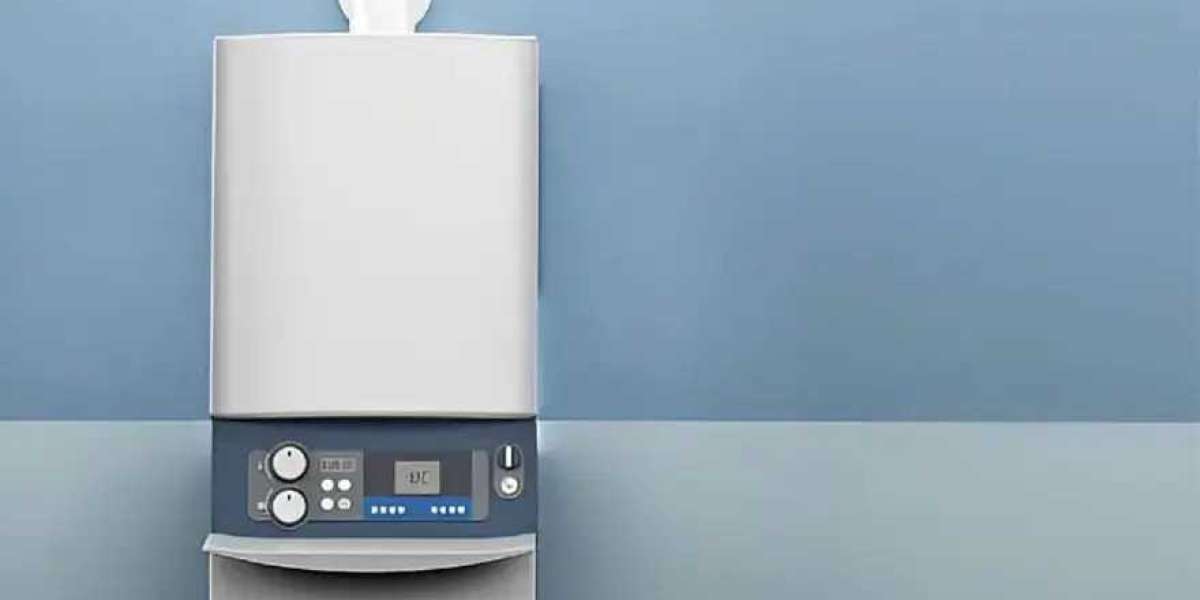The Free Boiler Scheme in the UK is a fantastic opportunity for homeowners and tenants to upgrade their heating systems at no cost. With energy bills on the rise, the government offers this initiative to help reduce heating costs, improve energy efficiency, and support vulnerable households. If your current heating system is outdated or inefficient, the Free Boiler Scheme allows you to replace it with a modern, energy-efficient boiler—without paying a penny. It's a practical solution for those looking to lower their carbon footprint and save on energy bills.
For some homes, the ideal heat pump might also be an option under the scheme, providing an eco-friendly and efficient alternative to traditional boilers. Heat pumps offer sustainable heating solutions, perfect for those looking to reduce their energy consumption and environmental impact. With this initiative, you have the chance to upgrade to a more efficient system, ensuring your home stays warm while saving you money in the long term.
Who Is Eligible for the Free Boiler Scheme?
Eligibility for the Free Boiler Scheme depends on several factors, such as your household income, the type of property you live in, and whether you receive specific benefits. Homeowners and tenants in social housing or privately rented homes are eligible to apply, though they must meet the criteria set by the government. Households receiving benefits such as Universal Credit, Pension Credit, or Income Support are often prioritized. Additionally, elderly, disabled, or low-income households may be eligible for priority installation.
To determine if you qualify, it’s a good idea to check the official guidelines or contact an approved installer who can assess your eligibility. Once approved, you’ll be eligible for a free installation, helping you save on the high costs of a new heating system.
What Types of Boilers Are Covered Under the Scheme?
The Free Boiler Scheme typically covers energy-efficient A-rated boilers that can significantly reduce your heating bills. These boilers are designed to provide better performance, faster heating, and lower energy consumption compared to older models. However, for some homes, an ideal heat pump might be considered, especially if you live in an area where heat pumps are more efficient and suitable for the climate.
Choosing between a traditional boiler and a heat pump depends on factors like your home’s size, current heating system, and whether you’re looking for an eco-friendly alternative. An experienced installer can help you choose the right option based on your home’s needs.
How to Apply for the Free Boiler Scheme
Applying for the Free Boiler Scheme is a straightforward process that involves a few simple steps:
Check Your Eligibility: The first step is to confirm that you meet the eligibility criteria. This typically includes receiving qualifying benefits or being part of a vulnerable group.
Find a Registered Installer: The government has approved a network of installers who are authorized to carry out installations under the Free Boiler Scheme. You can find these installers on government websites or ask for recommendations from local authorities.
Submit Your Application: Contact your chosen installer and provide the necessary documents, such as proof of income, benefits, and identification. Your installer will submit your application on your behalf.
Assessment: Once your application is received, the installer will assess your home to determine the best heating solution. They will help you decide whether to install a new boiler or an ideal heat pump based on your needs.
Installation: If your application is approved, the installer will schedule the installation at a time that works for you. The installation process is usually quick and professional, with minimal disruption to your daily routine.
The Installation Process Explained
Once your application is approved, the installation process is relatively simple. Here’s what you can expect:
Initial Assessment: An installer will visit your home to inspect your current heating system and determine the best option for your property. They will check factors like your home’s size, insulation, and current system to ensure that you receive the most efficient solution.
Old Boiler Removal: If you have an existing old boiler, it will be safely removed during the installation. The installer will dispose of it properly, ensuring everything is done in compliance with regulations.
New Installation: The new energy-efficient boiler or ideal heat pump will be installed. The installation process typically takes a few hours, depending on the complexity of your existing system and whether any modifications are needed.
Testing and Handover: After installation, the system will be tested to ensure everything works properly. You’ll be given instructions on how to operate and maintain your new system, as well as any necessary warranties.
The Impact of Upgrading to a Free Boiler
Upgrading to a new, energy-efficient boiler or ideal heat pump has a significant impact on your home’s energy usage and overall heating efficiency. Here’s how:
Reduced Energy Bills: One of the main benefits of upgrading your heating system is the reduction in energy bills. Newer boilers are much more efficient, using less energy to heat your home. For households struggling with high energy costs, this can be a game-changer.
Improved Comfort: Modern boilers and heat pumps provide consistent and reliable heating, keeping your home at a comfortable temperature without fluctuations. This is particularly helpful during the winter months when efficient heating is crucial.
Environmental Impact: By installing an energy-efficient heating system, you’re helping reduce carbon emissions, contributing to a more sustainable future. This is especially true if you opt for an ideal heat pump, which uses renewable energy to heat your home.
Common Misconceptions About the Free Boiler Scheme
There are several myths surrounding the Free Boiler Scheme that can discourage people from applying. Let’s clear up some of the most common misconceptions:
Myth 1: You Have to Be a Homeowner
While homeowners are the primary beneficiaries, tenants in social or privately rented homes can also apply for the scheme, provided they meet the eligibility requirements.Myth 2: The Installation Isn’t Free
Some people mistakenly believe that they will have to pay for installation or additional costs. However, the installation is completely free for those who meet the criteria, with no hidden fees.Myth 3: The Boiler Won’t Be as Good as a Paid Installation
The Free Boiler Scheme installs high-quality, energy-efficient boilers or heat pumps, which are just as reliable as those purchased privately. There’s no compromise on quality.
What to Do After Installation: Boiler Maintenance Tips
To ensure your new system continues to run efficiently, regular maintenance is essential. Here are some tips:
Schedule Annual Servicing: It’s recommended to have your boiler or ideal heat pump serviced annually to keep it running at peak efficiency.
Monitor System Performance: Keep an eye on how your heating system is performing, and if you notice any issues, contact an installer for a quick check-up.
Keep the Area Around the Boiler Clean: Ensure that the area around your boiler or heat pump is free from debris or obstructions that could interfere with its operation.
Conclusion: Why Upgrading to a Free Boiler Is a Smart Choice
The Free Boiler Scheme offers a fantastic opportunity for UK homeowners and tenants to upgrade their heating systems without the upfront cost. By replacing your old boiler with a new, energy-efficient model or ideal heat pump, you can enjoy lower energy bills, improved comfort, and a more sustainable home. Take advantage of the scheme today and start saving on heating costs for years to come.







